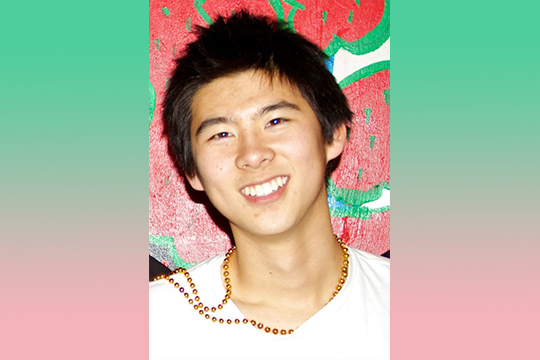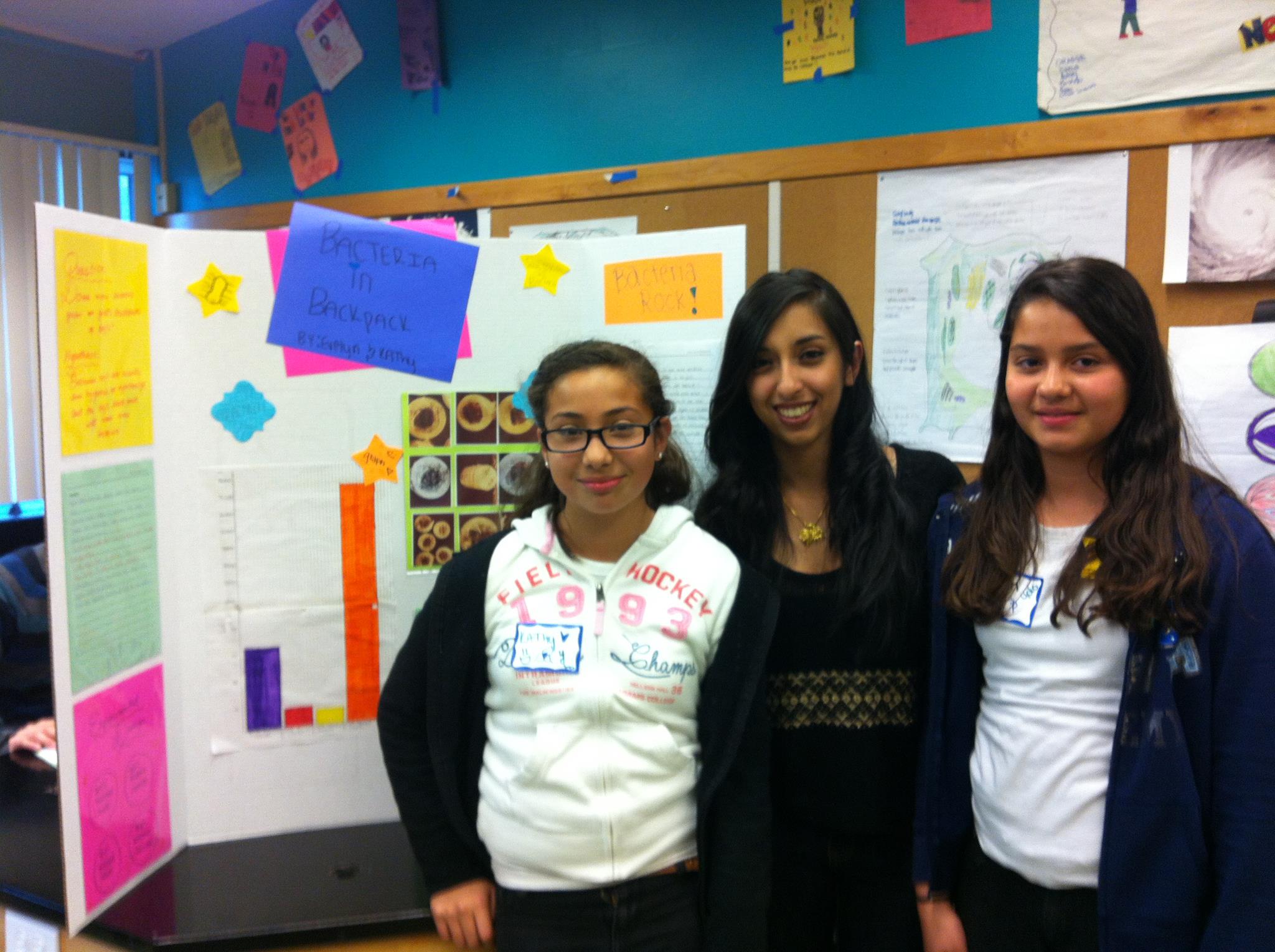
By Ritika Dutta, ’15 (Biology)
In my sophomore year, I worked with two middle school students on a project about bacteria. Neither of the girls seemed very interested in the material and both were constantly distracted. In an effort to make the project fun for them and engage them, I suggested that our project be to take bacteria from both girls’ and boys’ backpacks and compare the types and amount of bacteria in each. Immediately, the girls were excited and enthusiastic – they couldn’t wait to figure out whether boys or girls were “dirtier!”
The project was extremely effective in teaching essential scientific concepts, such as how to develop a hypothesis, design an experiment, and analyze data. As I watched the girls proudly and confidently present the project on the last day, I felt immensely proud at their progress – both girls had told me they were extremely shy and had never been able to speak publicly, but after a lot of practice and confidence-building, they did an amazing job and were able to overcome their fears. I hope that the experience helped them realize that science can be fun and interesting and opened the door for future exploration.
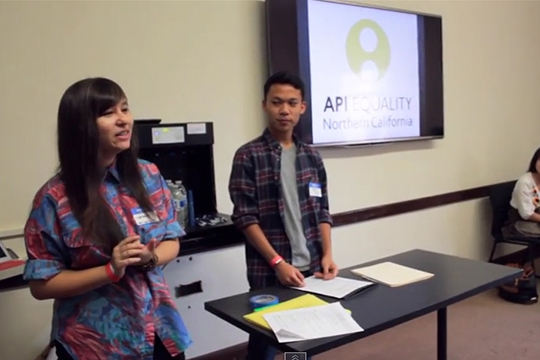
By Sammie Wills, ’16 (Comparative Studies in Race and Ethnicity)
As a low-income, queer, mixed-race Pilipina person, I had never been in a space that affirmed all of my identities before I joined the Asian Pacific Island Equality–Northern California organization (APIENC). Growing up, I was scared. I was too scared to rely on others, too scared to share parts of myself, and too scared to think that I may ever be enough. Finding a family at APIENC allowed me the space to move beyond these fears, and trust that the people around me would be there to support the amazing work that we need to do. When I walked into work at APIENC, it was the first time I was able to feel whole and authentic in every part of who I am.
The major highlight of that work, for me, is the Dragon Fruit Project, an inter-generational oral history project that documents the stories of LGBTQ Asian Pacific Islander Activists from the 60s, 70s, 80s, and 90s. By uplifting our queer API community histories, we’re breaking through the silence that is a byproduct of systematic and institutionalized oppression. When we engage with this work as interviewers, transcribers, archivists, and artists, we are creating inter-generational connections that ground us in an empowering and revolutionary historical narrative.
Check out the video of Sammie talking about the Dragon Fruit Project.

Nikita moderating a Stanford Peace of Mind panel in Kimball Hall, 2013
By Nikita Desai, ’15 (Science, Technology, & Society)
During my freshman year, as a member of Stanford Peace of Mind (SPoM), I saw students boldly share their struggles with mental illness at panels in dorms and residences across campus. I was struck by the cathartic effect of opening up in a way they otherwise never would have felt comfortable doing. Even more astounding was the manner in which the speakers’ exposure of their vulnerabilities inspired so many others to speak out and share similar stories of their own.
Recognizing the importance of supporting mental health on campus for the well-being of all students, I agreed to lead SPoM in my sophomore year. We worked to revitalize our dorm panel series, learned about the findings of the Provost’s Student Mental Health and Well-Being Task Force from Senior Associate Dean for Religious Life Rabbi Patricia Karlin-Neumann, and hosted Stanford alumnus and acclaimed film director, producer and writer Jay Roach, ’80, to share his personal experience with depression.
Almost one in four Americans suffer from mental illness. My SPoM experience has shown me that Stanford students are no exception, and my work this year to support student mental health on campus through the ASSU Executive has revealed that open dialogue is the key to securing mental well-being – now for Stanford students, soon for all Americans, and, eventually, for the world.
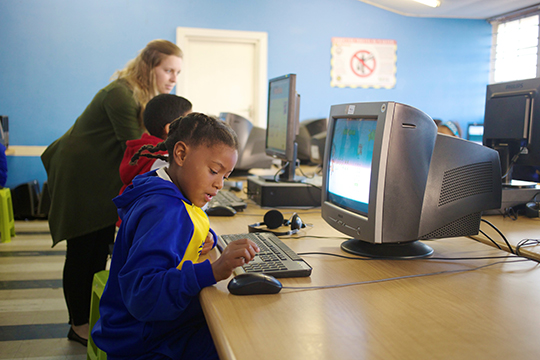
Morgan teaches a computer literacy class for students at Parkwood Primary School in Cape Town, South Africa, July 2014.
By Morgan Abbett, ’15 (Environmental Engineering, African Studies, and coterm M.S. Environmental Engineering and Science)
Across South Africa, mathematics test scores, secondary school matriculation rates, and youth employment rates are troublingly low. These statistics are, in part, the result of schools’ failure to teach students useful skills and provide personalized education. That is where computers can help. Through Stanford Engineers for a Sustainable World, I have worked for the past year to design a technology center at Parkwood Primary School in Cape Town, an underfunded public school that does not have a long-term computer space or program. Our team is working to build an effective, sustainable technology solution at Parkwood that will improve academic performance and propel students towards greater success in school and future employment. In addition to serving students, the center will provide computer access and training for teachers, parents, and other community members.
Thanks to an African Service Fellowship provided by the Haas Center, I spent several months in Cape Town designing the building, creating the program’s organizational model, teaching computer literacy classes, and working with our partners, an educational enrichment nonprofit called Bottomup, and a South African coding academy called iXperience. The next step is fundraising for the construction of the center. For more information please feel free to reach out to Stanford Engineers for a Sustainable World.
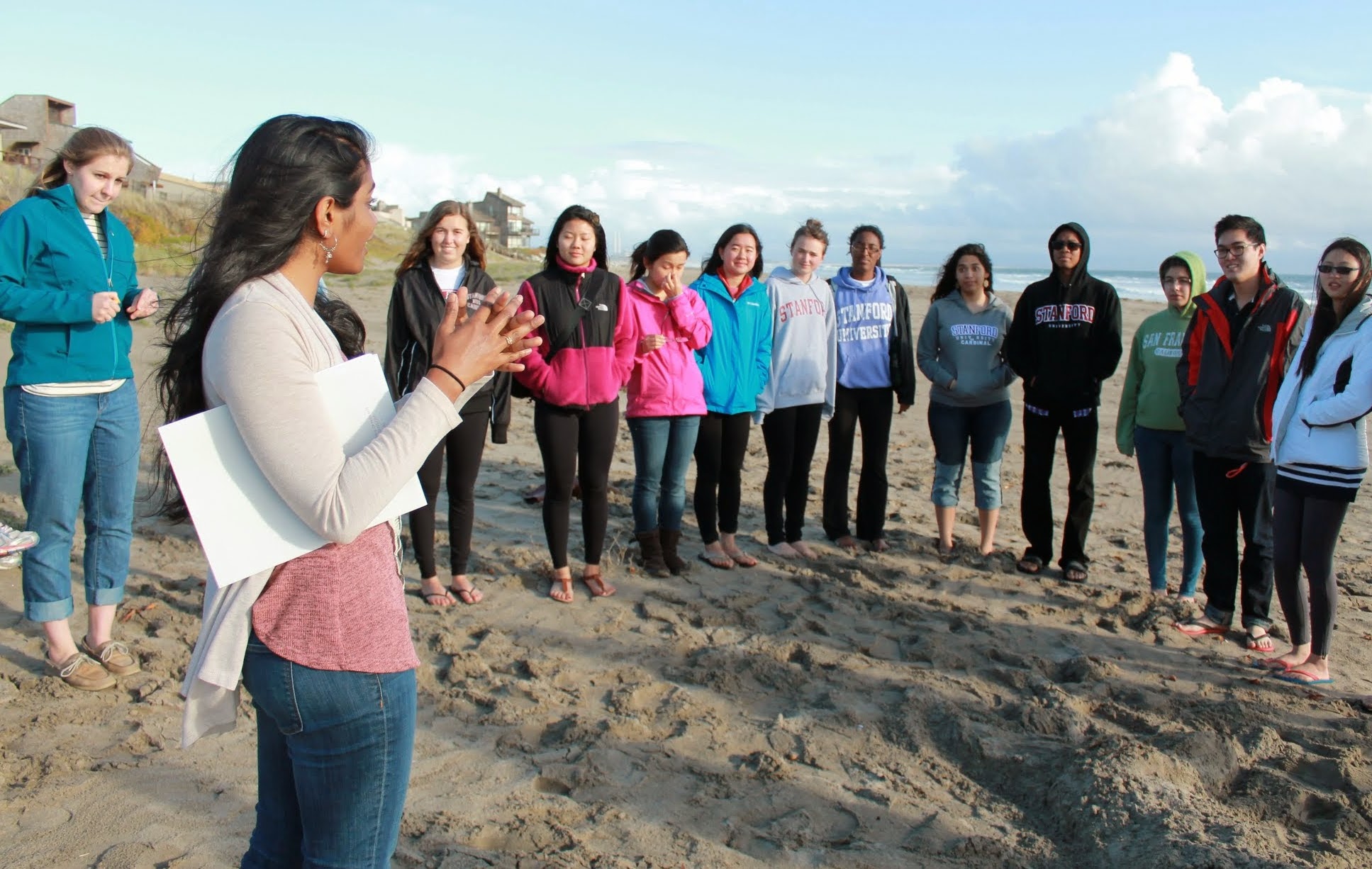
Anisha at the Haas Center's Emerging Leaders Retreat, 2014
By Anisha Mudaliar, ’15 (Economics)
In February of my freshman year, I had a chance to sit around a table with former Senator Russ Feingold and other students in Stanford in Government (SIG) to discuss the US’s responsibility to engage in sub-Saharan Africa. As former Chairman of the Senate Foreign Relations Committee on African Affairs, Senator Feingold shared with us the nuances and challenges of US policy in Africa as we delved into case studies ranging from diplomatic efforts to create an independent South Sudan to the use of military force in Uganda. Through this experience, among many others with SIG—including hearing from global leaders like Kofi Annan and Al Gore—I have had the opportunity to gain deeper insights into the role of policy as a tool to effect change at a large-scale level.
SIG has exposed me to the intricacies of the policy-making process, not only through discussion seminars and speaking events, but also through real-world applications of my learning through a SIG Fellowship with the Reserve Bank of India (RBI). SIG has established a range of fellowships in public service and policy around the world in institutions like RBI, the California Department of Education, NYC Economic Development Corporation, and UN High Commission on Refugees. At the core of these opportunities is the belief that individuals—and especially young individuals like ourselves—have the power to engage with policy and wrestle with some of our world’s toughest challenges. SIG has encouraged me to see the enormity of these challenges not as obstacles, but as opportunities—opportunities to learn, work, and serve alongside others to contribute to a more just and sustainable world.
By Sean Wang, ’15 (Biological Sciences)
When I first entered college, I had virtually no concept of “social entrepreneurship,” let alone its role as a pathway of public service. My interest in the topic arose from a fortuitous introduction to the “social-e” sphere through the Compass Fellows program and Social-E Capital, an early-stage social venture competition. Soon I began exploring how the technical aspects of science and engineering can be effectively leveraged for service.
Over time, several classmates and I have coordinated Stanford4Good, a conference on social entrepreneurship that convenes science and engineering undergraduates with young Stanford alumni working in social impact. We also partnered with the Career Development Center to recruit more tech-oriented organizations to the Social Impact Career Fair. Multiple attendees at these two events have expressed their excitement around “technology with purpose” – a notion I hope will become the norm as more students gain STEM backgrounds. Now, after co-leading a Thanksgiving Back service-trip on the topic in the Bay Area, I am confident that the popularity of social entrepreneurship on campus will continue to grow. I hope we may disrupt the traditional career mind-set of many STEM majors and encourage them to consider working in the social sector – an area in which their perspectives and skill sets potentially have much to contribute. I look forward to witnessing the social innovations that students at Stanford will dream up!
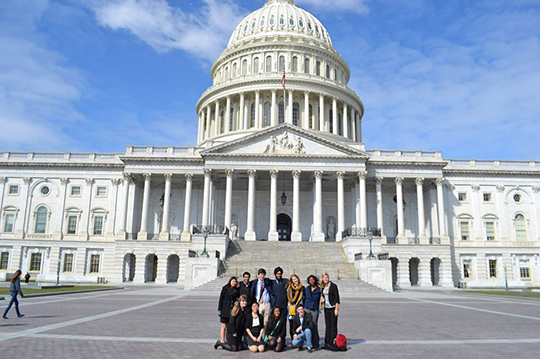
Lobbying for international human rights in Washington, D.C., 2013
By Jared Naimark, ’14 (Earth Systems)
In 2013, I led an Alternative Spring Break (ASB) trip to Washington D.C. After teaching a 10-week course to 12 fellow undergraduates on international human rights advocacy with my co-leader Emily Witt, we set off for a week-long exploration of our nation’s capital. We met with eight different nonprofit advocacy organizations and one government agency and engaged their staff in provocative discussions centered around the question: How can we get more people to care about international human rights and take action without oversimplifying the causes of or solutions to violent conflict?
With these discussions in mind, our group set off for Capitol Hill. We were nervous and tired, and most of us had never been in a lobby meeting before. But we put on our best clothes, reviewed our notes, and stepped into the congressional offices with confidence. We asked for the US to cut military aid to Rwanda which had been supporting abusive insurgent groups in Eastern Congo, and also asked for human rights benchmarks to be met before the US resumed military to military relations with Burma’s armed forces. After these lobby meetings, our trip was over, but our group’s commitment to transforming human rights advocacy was just beginning. Empowered by the notion that elected officials would actually care what a group of college students thought about human rights, our group was inspired to take what we learned on our trip and apply it to a diverse range of public service causes and pathways.





